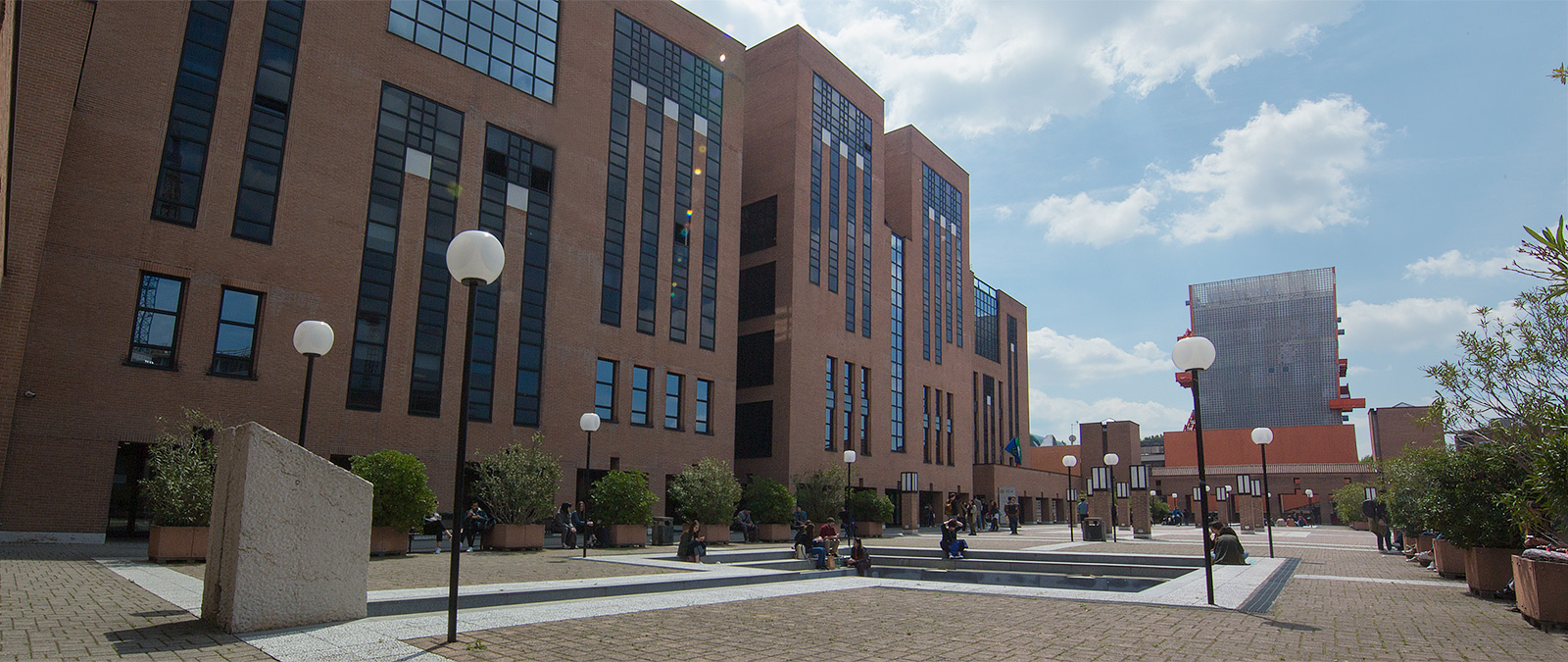
Educating ourselves in transdisciplinarity
A series of meetings on the theme of transdisciplinarity. The fourth meeting "Innovation, transdisciplinarity and transversality" with Andrea Prencipe, Rector LUISS University is scheduled for April 17, 5.30 p.m., IULM 6. Prof. Mauro Ceruti will be the introducer.
What are we talking about when we talk about "transdisciplinarity"? Transdisciplinarity expresses the need for educational and research paths capable of crossing disciplinary boundaries without merely juxtaposing different disciplines (multidisciplinarity) or contaminating them locally (interdisciplinarity). The idea is that of a profound reorganization of the dynamics of knowledge construction. This is an essential aspect of the reform of our knowledge paradigm in order to address the challenges and crises of contemporary times. All challenges and crises of planetary humanity -- democratic, environmental, energy, pandemic, economic, geopolitical, educational ... -- are as many cognitive challenges and crises. The obstacle to understanding the challenges and crises lies not only in our ignorance, but also lurks above all in our knowledge, in the way it is produced, organized and transmitted.
Disciplinary specialization has brought much knowledge. But this knowledge is incapable of grasping multidimensional, fundamental and global problems. The ways of thinking we use to find solutions to the most serious problems of our planetary age themselves constitute one of the most serious problems we face. The more multidimensional the problems become, the greater the inability to think about their multidimensionality; the more crises advance, the greater the inability to think about crises; the more global the problems become, the greater the inability to portray them
Consciousness of planetary problems therefore cannot exist without thinking capable of connecting the still disjointed notions and the still compartmentalized thoughts. To deal with these problems we need a new form of thinking. In other words: we need a reform of thinking and, inseparably, a reform of education.
IULM University is pleased to inaugurate a project around the theme of transdisciplinarity through a number of meetings with authoritative personalities who have reflected in depth on a transdisciplinary approach to education and research, in the awareness that knowledge of the problems of our time (including on the level of individual professionalism), and the ability to deal with them, cannot exist without an approach capable of linking perspectives, languages and forms of knowledge, in the horizon of a new Humanism
The first event, entitled "Socrates meets Prometheus", hold on November 23 featured Ivano Dionigi*, Professor Emeritus of Latin Language and Literature at the Alma Mater Studiorum - University of Bologna, of which he was Magnifico Rettore from 2009 to 2015. far from re-proposing itself as a parallel, autonomous and competing culture, humanism succors and accomplishes technological knowledge in representing and coping with a threefold responsibility and care: thears interrogandi, reconciliation with time, and consciousness of the whole. Prof. Mauro Ceruti, IULM professor and Pro-Rector for Transdisciplinarity, will introduce the meeting.
Below are the topics of the next meetings
The second event, entitled The Metaverse and digital twins in science, literature and art, featured Silvano Tagliagambe, Professor emeritus of Philosophy of Science who talked about how Neuroscience is increasingly highlighting the dual composition of the subject that makes each one of us, at the same time, an actor and a witness of self, articulated in an 'I' that moves and acts and in an 'I' that assists, criticises, corrects, remembers and finally judges. Our experience would therefore be the result of a continuous coupling and exchange between these two subjects, at the same time opposites and complementaries, who pursue each other. What we call 'person' would thus be constructed in a kind of theatre stage, in a seamless relationship between the 'sense of reality' and the 'sense of possibility', in an uninterrupted dialogue between perception and imagination. In this stage, memory would be oriented not so much towards the past, with the function of archiving experience, as towards the future, in order to be able to treasure it, gradually improving the performance to be implemented, in an effective collaboration between tradition and innovation. Silvano Tagliagambe is Professor Emeritus of Philosophy of Science at the University of Sassari. He graduated in philosophy in Milan with Ludovico Geymonat and specialised in physics at the Lomonosov University in Moscow. He has been Professor of Philosophy of Science at the Universities of Cagliari, Pisa, Rome 'La Sapienza' and Sassari. He is editor of the series 'Legacy of Pavel Florensky. Opere e studi" of the publisher Mimesis and co-director, with Dario Antiseri, of the "Piccola biblioteca del pensiero occidentale", of the publisher Rubbettino. The author of more than 400 publications, he deals with the processes of communication, the analysis of the most recent results of physics and neuroscience and the deepening of their epistemological significance, analytical psychology, the philosophy of medicine, the philosophy of the digital, the city and public space in relation to the organisation of networks and knowledge, the link between humanistic culture and scientific culture, and Russian scientific and philosophical thought.:
On 16 March, Professor Juan Carlos De Martin, Professor of Computer Engineering at the Politecnico di Torino, where he is Vice Rector for Culture and Communication and co-directs the Nexa Centre on Internet and Society, hold the seminar "Humanities and Social Sciences for Engineering: the experience of the Politecnico di Torino from 2018 to the present". Since 2018, the Politecnico di Torino has launched a series of initiatives with the aim of fostering a closer and broader dialogue between, on the one hand, the classical engineering disciplines and, on the other hand, the humanities and social sciences. Four years later, the three main initiatives - the Technology Biennial, the 'Grand Challenges' teaching and the Theseus Centre on Technology, Humanity and Society - are up and running, making the Politecnico a national pioneer and bringing it closer to the best international experiences.
Below are the topics of the next meeting:
- 17 April 2023, IULM 6, 5:30 p.m., Innovation, transdisciplinarity and transversality - Andrea Prencipe, Rector LUISS University
*Andrea Prencipe (PhD) is Rector of Luiss Guido Carli and Professor of Organisation and Innovation. He has held academic positions at the University of Sussex, INSEAD and G. d'Annunzio University; he was Visiting Professor at the Rotterdam School of Management, BI Norwegian Business School and Imperial College London. His research focuses on the organisation of innovation, project-based organisations and the relationships between social capital and innovation processes. His commitment, in his role as Rector, is to support academic innovation, encourage students to take an active role in their own education and ensure that the University contributes concretely to socio-economic progress
To participate in the meetings, it is necessary to register on the form

The series of meetings on transidisciplinarity is part of the Badge of Honour initiative
Student participation in all meetings will count as Badge of Honour